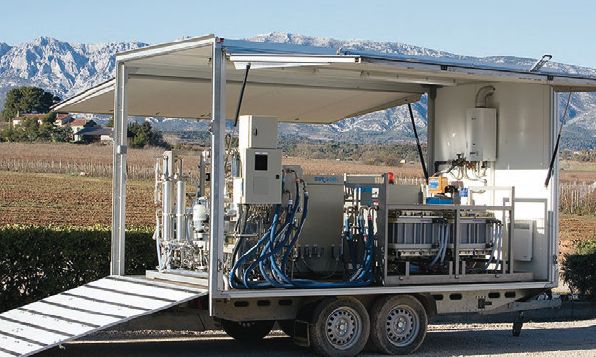Dealcoholisation of wine by membrane coupling.

MOMENT OF INNOVATION..
Stakes.
INNOVATION STATUS.
The effects of climate change on wine quality are both an increase in alcoholic degrees and pH. Several techniques are possible for decreasing the final alcohol content of the wine, in particular the use of membrane processes which have the advantage of being the physical process which alters the least other components of the wine quality.
In the case of membrane process couplings, the first stage of the dealcoholisation (reverse osmosis or nanofiltration) makes it possible to separate the components of the wine by extracting the ethanol in the form of a hydro-alcoholic permeate.
The second step, with a membrane contactor, makes it possible to partially extract the ethanol from the permeate according to the principle of osmotic evaporation, using water as a solvent, the pores of the membrane used (hydrophobic material) being filled with air.
The two stages are conducted continuously, the permeates being dealcoholised as they are produced, and then reintroduced as the wine is being processed. A reasonable limit of dealcoholization of -3% (vol) is set for membrane coupling. The partial dealcoholisation of wines by 20% of the initial degree is accepted by the International Organization of Vine and Wine (OIV) and now authorized by the European Union.
Author: Marc Nougier
References:



